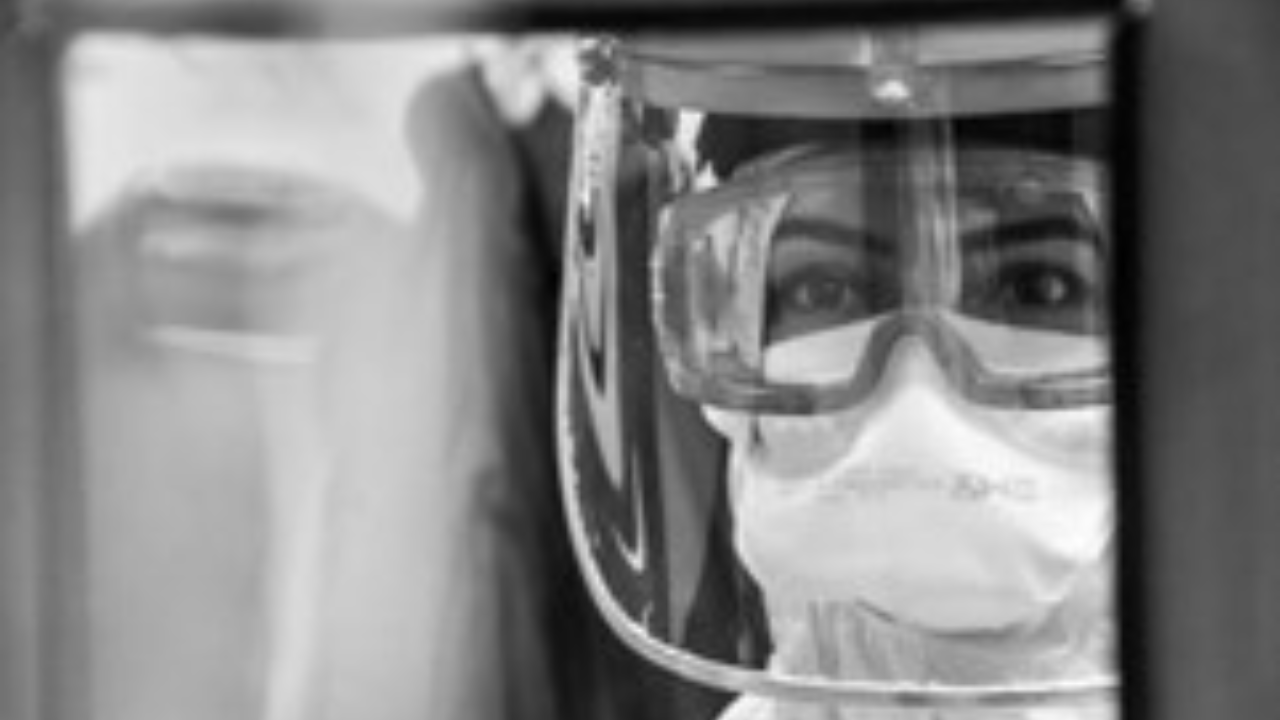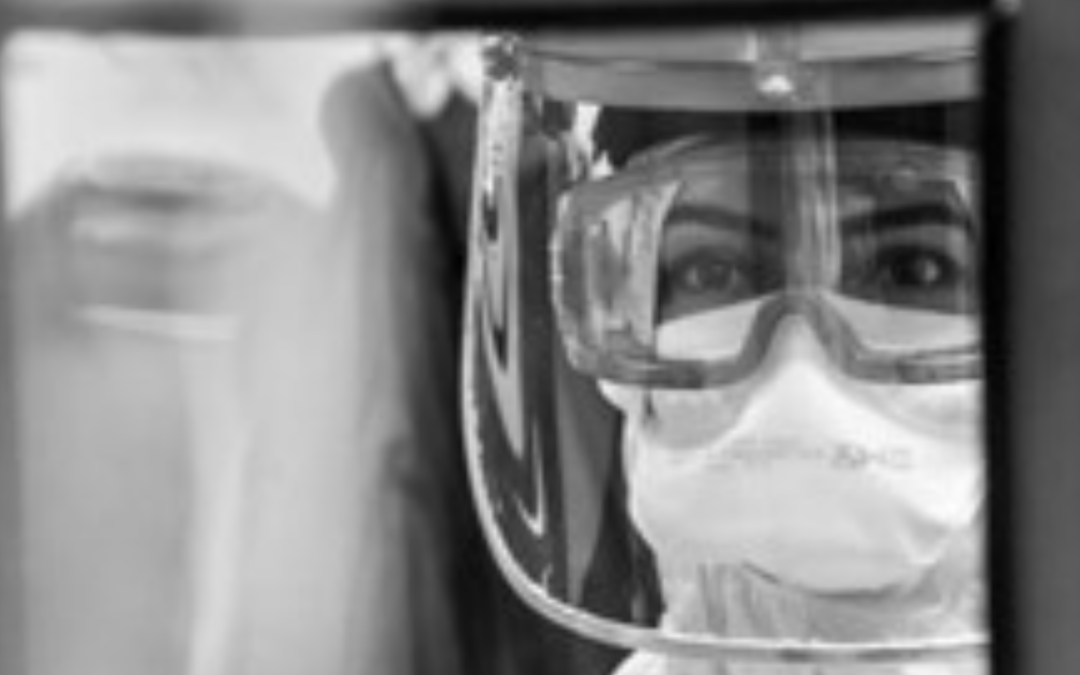
Thinking about pursuing a career in nursing? You’re not alone! Nursing is a gratifying profession that offers countless opportunities for personal and professional growth. But, like any other career choice, it’s essential to consider the safety aspects before diving headfirst into this noble healthcare field.
So, Is nursing a safe career? Below, we explore the ins and outs of nursing safety and how Davis & Elkins College can help you prepare for a successful journey in this remarkable industry.
Get ready to discover why nursing is more than just a job—it’s a calling filled with endless possibilities!
The High Demand for Nurses
The demand for nurses is higher than ever before, and various factors contribute to this trend:
- Aging Population: With the aging population and advancements in healthcare, there’s a growing need for qualified nursing professionals. Hospitals, clinics, long-term care facilities, and other healthcare settings constantly seek skilled nurses to provide compassionate patient care.
- Retirement of Experienced Nurses: Many experienced nurses are nearing retirement age, creating a gap that needs to be filled by new graduates. This presents an excellent opportunity for those considering a career in nursing.
- Impact of COVID-19: The COVID-19 pandemic has further highlighted the importance of nurses in our society. Nurses have been on the front lines, working tirelessly to care for patients and help combat this global health crisis. The pandemic has increased awareness of how vital nurses are and brought more attention to their significant role in healthcare.
- Advancements in Medical Technology: As medical technology rapidly advances, new treatment options become available, requiring specialized nursing expertise. Nurses who stay up-to-date with these advancements can be invaluable assets in providing quality patient care.
The high demand for nurses now and into the future presents an exciting opportunity for individuals looking for a rewarding career. In nursing, you can make a difference in people’s lives daily while enjoying job security and growth potential.
Is Nursing a Safe Career: Davis & Elkins College Helps You Prepare
Working as a nurse can be incredibly rewarding, but it’s essential to be aware of the safety risks associated with this profession:
- Exposure to Infectious Diseases: Nurses often deal with infectious patients, putting them at a higher risk of contracting diseases. At Davis & Elkins College, we prioritize comprehensive training on infection control protocols and best practices to prevent disease transmission.
- Physical Strain and Injuries: Regularly lifting and moving patients can strain nurses’ bodies. Improper techniques or inadequate equipment may lead to musculoskeletal injuries such as back pain or herniated discs. Our curriculum includes education on proper body mechanics and safe patient-handling techniques to reduce the risk of injuries.
- Workplace Violence: Healthcare settings may pose the risk of workplace violence. Nurses might encounter verbally abusive or physically aggressive behavior from patients or families. Davis & Elkins College provides training in de-escalation techniques and strategies for managing challenging interactions, equipping future nurses to handle potential hazards in the workplace.
While nursing is a noble profession, it’s crucial to prepare for these inherent safety risks. Davis & Elkins College ensures its nursing students are well-prepared for these challenges before entering the workforce, promoting a fulfilling and secure nursing career.
Steps to Ensure Safety as a Nurse
In the nursing field, safeguarding safety is paramount for nurses, patients, and colleagues. Here are key steps to ensure safety:
- Comprehensive Training: Nurses must be thoroughly educated in infection control, safe medication administration, and emergency response protocols to handle diverse situations effectively.
- Hygiene Practices: Adhering to strict hygiene practices includes regular handwashing to prevent infections. Using personal protective equipment (PPE), such as gloves, masks, and gowns, when necessary, further reduces exposure risks.
- Maintain a Safe Environment: A clean and organized workspace is essential. Tidy patient rooms reduce tripping hazards and prevent accidents. Proper hazardous material disposal ensures a secure workplace.
- Effective Communication: Clear documentation ensures that the healthcare team has accurate information about patient conditions and treatment plans, promoting patient safety.
- Self-Care: Nurse safety includes self-care. Taking necessary breaks, ensuring adequate rest after demanding shifts, and engaging in stress-reduction activities like exercise or hobbies contribute to mental well-being, translating into safer nursing practice.
- Critical Thinking: Developing critical thinking skills and being aware of potential risks while collaborating with the healthcare team members are essential to ensure safety in nursing.
Safety should always be the top priority for nurses as they continue their noble and secure career path.
Mental and Emotional Well-Being of Nurses
Mental and emotional well-being is vital for nurses, who often face high stress levels and emotional strain in their profession. They witness trauma, deal with life-and-death situations, and maintain demanding work schedules.
The toll on mental health can manifest as burnout, anxiety, depression, or post-traumatic stress disorder. Prioritizing self-care and well-being is crucial.
- Wellness Programs: Healthcare institutions are introducing wellness programs focusing on stress management techniques, like mindfulness meditation and yoga. These tools empower nurses to navigate the challenges they encounter.
- Peer Support: Seeking support from colleagues, peer groups, or counseling services is invaluable for processing emotions and avoiding isolation. Discussing work challenges offers relief.
- Outside Resources: Nurses should explore activities outside of work that enhance mental well-being, such as exercise, hobbies, quality time with loved ones, and relaxation activities.
Prioritizing mental and emotional well-being empowers nurses to maintain balance, excel personally and professionally, and provide excellent patient care.
Advancements in Technology and Safety Measures in Nursing
Advancements in healthcare technology have revolutionized the nursing profession, making it safer.
- Electronic Health Records (EHRs): EHRs provide quick and accurate access to patient information, reducing errors associated with paper charting and ensuring that crucial medical data is readily available to the healthcare team.
- Barcode Medication Administration (BCMA): BCMA systems enable nurses to scan and verify medications against the patient’s EHR, reducing medication errors and enhancing patient safety.
- Telehealth: Telehealth platforms allow nurses to provide remote care, minimizing exposure to infectious diseases while delivering quality patient care.
- Wearable Devices: Smartwatches and fitness trackers continuously monitor patients’ vital signs. Nurses receive real-time alerts in case of abnormalities or emergencies, facilitating immediate intervention.
These technological advancements have significantly improved safety measures in nursing, and the rapid evolution of technology promises even more innovative solutions for enhancing nurse safety and patient outcomes.
BSN & ASN Program with Davis & Elkins Prepares You For Success
When pursuing a nursing career, selecting the right educational path is essential for success. Davis & Elkins College’s Bachelor of Science in Nursing (BSN) program is expertly designed to equip students with the knowledge and skills needed to thrive in the demanding nursing field.
- Comprehensive Curriculum: The BSN program focuses not only on nursing theory and practice but also on essential components such as patient safety, communication techniques, critical thinking skills, and leadership development.
- Hands-on Experience: Students gain real-world experience through clinical rotations at top healthcare facilities. They work under the guidance of experienced nursing professionals, applying classroom learning to actual patient care settings.
- State-of-the-Art Simulation Labs: Davis & Elkins College features advanced simulation labs where students can refine their clinical skills using cutting-edge technology. These simulated experiences build confidence and competence, ensuring readiness for real-world practice.
- Supportive Community: The college’s expert faculty members offer individualized attention and unwavering support throughout your academic journey. They are dedicated to your success as a nurse.
Davis & Elkins College’s Associate of Science in Nursing (ASN) program offers a solid foundation. Key program highlights:
- Comprehensive Curriculum: The ASN program covers theoretical knowledge, healthcare concepts, and practical skills essential for nursing practice.
- Hands-on Clinical Experience: Emphasis on real-world training, enabling students to work with patients under professional guidance, enhancing practical skills and confidence.
- Patient Care & Critical Thinking: Focus on high-quality patient care and critical thinking, preparing students for complex healthcare scenarios.
- Communication Skills: Developing practical communication skills for compassionate patient interaction and collaboration with healthcare teams.
Upon ASN program completion, graduates are eligible to take the NCLEX-RN, a vital step toward a nursing career.
Choose Davis & Elkins College’s BSN or ASN Programs for a comprehensive education that not only prepares you for success but also emphasizes your safety and well-being in the nursing profession. This rigorous program equips you with the tools necessary to thrive in your nursing career.
Weighing the Pros and Cons of Nursing as a Safe Career Choice
Is Nursing a Safe Career Choice? Weighing the Pros and Cons
When deciding “Is nursing a safe career choice,” it’s essential to weigh the pros and cons that we discussed above.
Pros of Nursing:
- Job Security and High Demand: The healthcare industry’s rapid growth ensures a constant need for qualified nurses, offering job stability and long-term career prospects.
- Advancements in Technology: Innovations like electronic health records and automated medication systems have significantly reduced human error and enhanced patient care, contributing to safer working environments.
- Comprehensive Training: Nursing programs, like those offered by Davis & Elkins College, prepare students for the profession’s challenges. Graduates emerge with essential skills and knowledge, establishing a solid foundation for their nursing careers.
Cons of Nursing:
- Physical and Emotional Demands: The nature of the profession can be physically demanding and mentally exhausting at times. Long hours and emotionally challenging situations can take a toll on nurses’ mental and emotional well-being if not adequately addressed.
- Inherent Risks: While technology has improved safety measures, there will always be risks when dealing with unpredictable patient behavior or infectious diseases.
Is Nursing a Safe Career? Recap & Close
Nursing stands as a beacon of personal and professional fulfillment, offering not only financial stability but also a unique chance to impact the world of healthcare positively. Choosing a career in nursing is a decision that should be made with careful consideration, taking into account your passions and values and a full awareness of both the advantages and challenges the profession entails.
If you’re inspired to embark on this incredible journey, Davis & Elkins College is here to guide you every step of the way. Our comprehensive nursing programs are designed to prepare you for the demands and rewards of this noble profession. Join us at Davis & Elkins College and equip yourself with the knowledge, skills, and support you need to thrive in the world of nursing.
Contact us today as your fulfilling career awaits!

